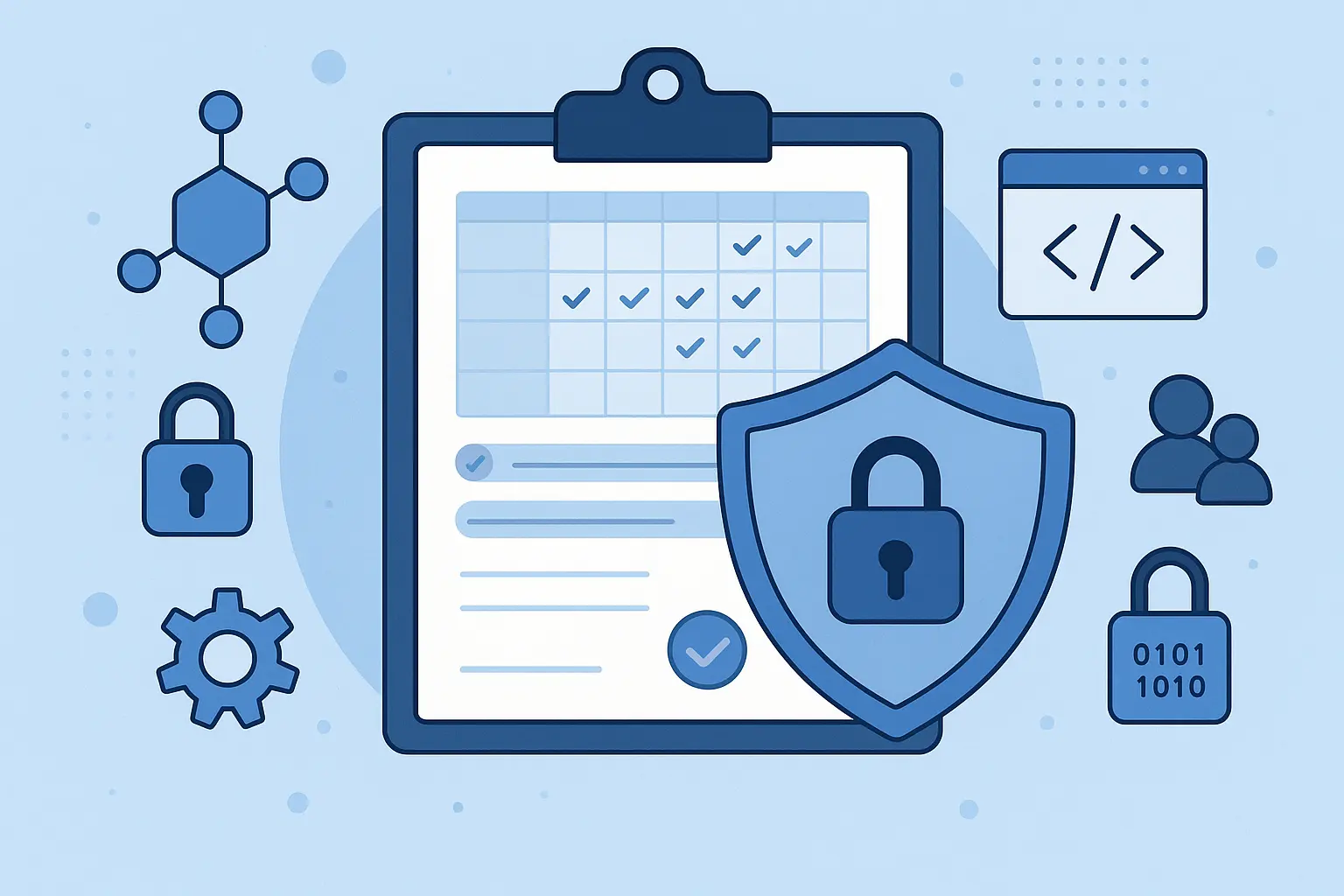IN THIS POST
Due diligence is a vital step in private equity transactions. Investors thoroughly examine potential target companies before making their investment decisions. The examination includes a thorough financial assessment along with operational analysis of processes and regulatory compliance verification. Conventional planning techniques for due diligence tend to be problematic with logistical intricacies, communication lapse, and ineffectiveness delaying transactions.
Automated scheduling tools have transformed due diligence practices with their systematic framework to manage schedules and track progress while upholding compliance requirements. With automated scheduling software, private equity companies can conduct due diligence with more accuracy and efficiency.
Understanding Due Diligence in Private Equity
Private equity investors should examine prospective target firms before investing any money. It helps them uncover potential undisclosed liabilities and regulatory issues that can cause loss. A diligent investigation enhances clarity which enables organizations to minimize errors while delivering optimal financial value.
Besides mitigating risk, due diligence also helps in shaping investment decisions and long-term value creation. Through proper due diligence activities private equity firms uncover hidden corporate value. Investors look for ways to enhance performance, expansion possibilities, and synergies across their existing business portfolio to support their investment decision.
They also want to ensure regulatory compliance and alignment with industry standards. It reduces the likelihood of legal or reputational issues post-acquisition. In a competitive deal-making environment, private equity firms rely on detailed due diligence as their main mechanism to differentiate successful investments from unsuccessful ones.
The Challenges of Traditional Due Diligence Scheduling
Private equity due diligence is often hampered by inefficient scheduling practices. They can lead to missed deadlines and unnecessary delays. Some key challenges include:
- Traditional scheduling practices force stakeholders to communicate through multiple emails and phone calls before they can coordinate their schedules.
- Human errors during scheduling create overlapping meetings and miscommunications which results in missed deadlines.
- Scheduling changes can create confusion when not updated instantly across all stakeholders.
- Organizations handling international transactions face the challenge of managing their schedules across many different time zones.
Automation remedies these process inefficiencies, hereby maximizing the performance of due diligence procedures.
Automating Scheduling to Enhance Due Diligence
The use of automated scheduling software reduces scheduling inefficiencies by managing the entire process automatically.
Increased Efficiency and Error Reduction
One of the primary benefits of automation is the reduction of human errors associated with manual scheduling. Inefficient task assignment together with missed deadlines and overlapping appointments results in delayed transactions which can have costly financial impacts. Automated scheduling minimizes these issues by integrating advanced algorithms that optimize scheduling patterns based on priority levels and stakeholder availability.
Automated scheduling technology improves efficiency because users can receive instant updates. When stakeholders are notified about upcoming work they don’t miss the deadline. With automated scheduling, firms can allocate resources more effectively. As a result, their due diligence process executes quickly and remains organized.
Enhanced Collaboration and Communication
The success of due diligence procedures in private equity transactions depends heavily on seamless communication between investors, their legal advisors, financial analysts, and the target companies. Real-time collaboration becomes harder when the methods of communication are lengthy email chains and manual follow-ups.
An automated scheduling system helps stakeholders improve collaboration with its built-in communication tools. With a centralized system, all involved parties can access real-time updates, track progress, and share documents to remain informed.
Hiive private equity marketplace is an excellent example. It has integrated automation tools that enable stakeholders to collaborate effectively. Using these platforms, companies can expedite decision-making and ensure transparency in the transaction process.
Data Management and Security
Due diligence is conducted using sensitive financial and legal information, hence data security is a top priority. Without stringent security features firms are vulnerable to data breaches and unauthorized access.
Automated scheduling, tools with their sophisticated encryption methods, keep sensitive information confidential. The software also provides access controls, so only authorized individuals can read or edit sensitive information.
Another important benefit of automated scheduling is data protection compliance. Private equity companies exist in a very regulated world with a need for rigid compliance to legislation. Automated tools help keep the company in compliance by producing audit trails so that all activities undertaken during due diligence are tracked and traceable.
Real-Time Monitoring and Reporting
Automation not only streamlines scheduling, but also enables real-time monitoring of due diligence activities. Advanced reporting features provide stakeholders with detailed insights into task progress, pending activities, and overall due diligence timelines. The main advantages of real-time monitoring are:
Instant Visibility into Transaction Progress
Real-time tracking enables private equity firms to monitor the progress of due diligence work and ascertain if it is proceeding according to plan. Investors and stakeholders have real-time information about what is done, what is in process, and what requires urgent attention.
Identification of Potential Bottlenecks
One benefit of real-time monitoring is the capacity to detect roadblocks in advance. If a specific area is running longer than anticipated, companies can reallocate resources or shift priorities as needed. This tactical maneuver enhances efficiency and facilitates smoother deal execution.
Improved Accountability
With real-time monitoring, all actions taken during the due diligence process are logged and recorded. This makes each member of the team responsible for their duties and also keeps on record who performed what task. These records can be utilized later during compliance audits and internal evaluations to make their operations stronger.
Optimized Resource Allocation
Private equity due diligence requires collaboration between financial analysts, legal attorneys, compliance professionals, risk analysts, and other professionals. Manual coordination of their workloads tends to be inefficient because critical staff end up overburdened while others sit idly waiting for their work to start.
Automated scheduling software streamlines resource management by leveling out workloads, so each member of the team is utilized without being overwhelmed. In an increasingly demanding industry, it is essential to craft a work schedule to avoid burnout and maximize efficiency through automated tools
With automated task allocation, these tools can focus on high-priority issues with urgent deadlines while assigning lower-priority tasks in an organized fashion. This way nobody has to wait around for others to finish their share of due diligence. And since everyone is aligned, the process of due diligence progresses more smoothly.
In addition, automation lowers the likelihood of human error in scheduling and task allocation. Instead of coordinating via email chains and spreadsheets, private equity houses can utilize intelligent scheduling software that dynamically adapts to workloads. This creates a smoother, more predictable due diligence schedule.
Streamlined Document Reviews
Due diligence involves checking numerous documents. Private equity firms check financial statements, tax returns, and more. An unstructured system causes examinations to become disorganized, with delayed deadlines and uncoordinated efforts resulting in avoidable delays. Automated scheduling tools make this simpler by allocating deadlines, reminding reviewers, and monitoring progress in real time.
All documents follow accurate approval pathways thanks to these digital platforms. Automated reminders sent to reviewers help prevent missed tasks resulting in delays. The scheduled review process becomes easier to handle when stakeholders get to concentrate their efforts on critical areas, such as financial risk evaluation or regulatory compliance analysis.
In addition, automated scheduling removes the inefficiencies of going back and forth. When everyone involved is clear on when they are supposed to review and approve documents, there is less misunderstanding, and the whole process flows smoothly. This leads to a more thorough and timely due diligence review.
Improved Compliance and Audit Trails
Regulatory compliance is very important in private equity deals, and documentation lapses can result in legal and financial burdens. Automated scheduling software enables companies to keep detailed audit trails by recording all meetings, review sessions, and decisions taken during the due diligence process. Transparency and accountability are ensured throughout the process.
Having a detailed and chronological account of all activities enables companies to prove compliance with sector regulation in the event of an audit. It also makes it possible for investors, regulators, and internal stakeholders to track how decisions were reached and confirm that due diligence was completed rigorously. This documentation is critical in minimizing legal exposures and ensuring that every deal complies with requirements.
Aside from regulatory advantages, an audit trail enhances internal governance. Private equity firms combine these records with their due diligence practices to develop enhanced processes which they can use in future deals. Automated compliance tracking lets firms develop stronger risk management procedures which leads to improved deal execution structure.
Seamless Integration with Virtual Data Rooms (VDRs)
Private equity companies depend heavily on Virtual Data Rooms (VDRs) to archive, organize, and distribute sensitive documents. Manually managing access to these documents can be time-consuming and prone to errors. VDRs link with automated scheduling tools which deliver crucial documents to significant stakeholders exactly when they need to view them.
With automated scheduling, due diligence teams can establish review deadlines and initiate notifications when new documents are uploaded. This prevents the need for continuous follow-ups and delays brought about by forgotten document reviews. The integration makes sure that everyone remains up-to-date and has access to the required materials without interruptions.
The advanced automation system establishes a better framework to maintain secure access controls. By specifying who should view or edit documents during certain times, private equity firms can block unauthorized access while retaining an effective review process. This orderly process increases data security and makes it easier for firms to manage confidential information.
Faster Decision-Making
In private equity, fast decision-making stands important because delayed actions could produce missed opportunities and new risks. Automated scheduling software prevents unnecessary administrative delays by making sure that meetings, document reviews, and approvals occur on schedule. This speeds up the overall due diligence process.
Through real-time updates and automated notifications, these tools keep stakeholders in sync and informed. Decision-makers no longer have to wait for manual reports or run after information, since everything is automated and tracked on a schedule. This enables companies to react more quickly to threats and opportunities. Automation keeps the momentum going with less likelihood of deals falling through.
Implementation Strategies
Implementation of automated scheduling in due diligence needs to be strategic. Companies must adopt the following sequence of steps:
Evaluate Current Processes
The first step towards automation is identifying inefficiencies in existing due diligence processes. Companies must study how long each of these processes takes, where delays usually happen, and which tasks need constant rescheduling.
By knowing these pain points, companies can identify where automation will be most effective. This evaluation guarantees that the shift to automated scheduling is seamless and directed toward places that will produce the greatest gains in efficiency.
Select the Right Technology
Selecting the appropriate automation tool is important. Companies should select scheduling software that works well with their current systems, offer real-time feedback, and include advanced security features.
Security is also essential because companies manage sensitive financial and legal information. The platform adopted must provide solid encryption and permission-controlled access in order to satisfy regulatory requirements.
Provide Training in Automation Tools
Implementation of a new system needs thorough training to allow adoption and efficiency. Companies should train employees, investors, and attorneys to acquaint them with the novel scheduling tools.
Training sessions must also incorporate troubleshooting tips and best practices. The platform will reap its full advantages when all stakeholders know how to properly use it.
Monitor and Optimize Usage
Automated scheduling is a continuous process, not a one time solution. Companies must be constantly observing the usage of the scheduling tool and taking feedback from stakeholders to improvise. Private equity firms should base their system optimization decisions on real-world usage data so that the system stays productive and keeps contributing to the efficiency of due diligence processes.
Endnote
Automated scheduling has become an essential application in private equity due diligence, with substantial advantages of enhanced efficiency, increased collaboration, secure data, and compliance verification. Private equity firms who adopt automated workflows produce efficient operations with minimal operational risks and strong stakeholder communication channels. The future of due diligence is automation, and companies that adopt these tools will be positioned for long-term success.
Recommended Articles

From Side Hustle to Full-Time: How ESL Tutors Scale Their Income with Smart Tools?
BOOKAFY BLOG From Side Hustle to Full-Time: How ESL Tutors Scale Their Income with Smart Tools? IN THIS POST Do you remember working at your typical 9-5 job? You might

6 Online Identity Verification Methods for Booking Platforms
BOOKAFY BLOG 6 Online Identity Verification Methods for Booking Platforms IN THIS POST Many people have either grown tired of or just don’t like making bookings and reservations via phone

Why Transparency and Education Are the New Growth Engines in eCommerce Online Wellness Markets
BOOKAFY BLOG Why Transparency and Education Are the New Growth Engines in eCommerce Online Wellness Markets IN THIS POST The online wellness market is undergoing a significant transformation. Once dominated

9 API Security Best Practices Every Booking Platform Needs
BOOKAFY BLOG 9 API Security Best Practices Every Booking Platform Needs IN THIS POST Your organization is like a finely tuned machine where systems work together in harmony to keep

Why Remote Teams Secretly Appreciate Timesheet Software Like Workstatus
BOOKAFY BLOG Why Remote Teams Secretly Appreciate Timesheet Software Like Workstatus IN THIS POST Remote work has transformed how businesses are operated. Different cities; or even nations, are collaborating on

All About Optimizing Your Booking Page for Search Engines
BOOKAFY BLOG All About Optimizing Your Booking Page for Search Engines IN THIS POST Have a booking page, but not getting as many customers as you expected? That could be

